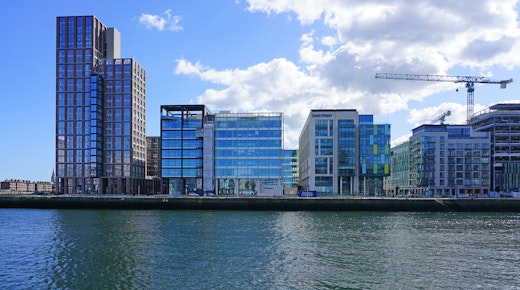Businesses are increasingly recognising the economic potential of transitioning to more sustainable business models, an opportunity estimated to be worth $12 trillion to the global economy by 2030
Businesses of all sizes across a range of sectors are embracing sustainability and developing ambitious strategies to help them realise this opportunity. However, the concept of sustainability can sometimes be daunting. What do the buzz words of “sustainability”, and “circular economy” mean?”
Sustainability identifies that businesses must look beyond solely existing for profit and look at how they can also contribute to social and environmental factors if they want to achieve long-term growth.
Traditionally, most business have operated a linear approach i.e. they use raw materials to make a product and at the end of its useful life, the product (and the waste generated during production) is thrown away.
With the need to reduce carbon emissions and waste, a new approach to business, known as the circular economy model, aims to design out waste, keep resources in use for as long as possible and recover the product/material so it can be used again.
The need to move to new sustainable business models is being driven by a range of important factors including supply chain security, customer and consumer demands, reputation management, investor requirements, attracting and retaining talent and the opportunity to drive innovation.
Many organisations already recognise that they must play their part in responding to global challenges such as climate change.
They understand that acting now will have a positive environmental impact, but it will also help their bottom line. Unilever, Ikea and Adidas are excellent examples of organisations that are embracing sustainability and transforming by adopting circular models.
So where can businesses start? In SustainabilityWorks, we recommend these four steps:
- Understand: the resources used and the waste generated and identify ways to be more efficient.
- Engage your staff and empower those that want to do more. Talk to your customers, investors and lenders – find out what matters to them.
- Scan: Review sustainability practices in your supply chain; what are your competitors doing?
- Communicate: Tell your story – make sustainability core to your brand.
The Dublin Regional Enterprise Plan Development Group are progressing on several measures to help businesses take action. One such measure is the MODOS training programme, designed to help SMEs assess their business and identify steps to become more sustainable and circular.
Participants in the pilot included Viva Green, Attention Attire, Native Events, Inis Fragrances and Luncheonette, each of whom would recommend the programme to other SMEs.
Trainers on the MODOS Programme was delivered by SustainabilityWorks, Clearstream Solutions, EcoMerit, Actionable and The Impacter.
At SustainabilityWorks we believe sustainability is a business opportunity and work with businesses to develop and deliver strategies, programmes and partnerships that unlock commercial opportunities and enable positive action. We make sustainability simple. We make it actionable. We make it work: www.sustainabilityworks.ie.





